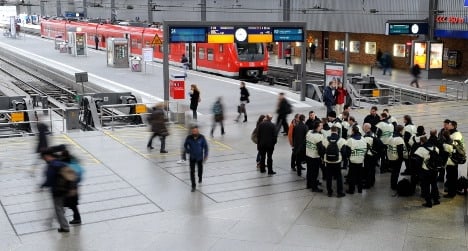CRIME
Mother of dead baby released on bail
The mother of a dead baby found inside a rubbish bin in the toilet of an Austrian train heading for Munich was released on bail in June.
Published: 2 July 2014 18:44 CEST

The baby was found in an Austrian Railways train at Munich's main station. Photo: DPA
The 21-year-old student from South Korea was arrested on May 23rd, on suspicion of causing the death of her newborn baby, which was apparently abandoned inside the rubbish bin of a toilet cubicle of the train while passing through Austria.
The spokeswoman for the Vienna Regional Court, Christina Salzborn, confirmed that the woman's release occurred on June 4th, according to the Austrian Press Association (APA), which was following up on a report in the Kronen Zeitung newspaper.
The Paris-based woman had been held in custody after her arrest until a bail hearing, at which point she was freed on payment of €5,000 bail bond. The woman has been charged with the murder of her child at birth by suffocation, and could face a custodial sentence of up to five years. At this time, no date has been set for the trial.
Nina Bussek of the Vienna Public Prosecutor's office said "There is no deadline to run the investigation."
It is not known whether the woman is still in Austria, however usually in such cases any travel documents are held by the court when there is a flight risk, and strict police reporting requirements are imposed. According to the daily Kronen Zeitung newspaper, the woman is regularly updating her Facebook page, including posting "selfies."
The dead new-born was found by cleaners during the night of May 20th on an Austrian State Railways (ÖBB) train from Budapest upon its arrival in Munich.
Url copied to clipboard!


 Please whitelist us to continue reading.
Please whitelist us to continue reading.
Member comments